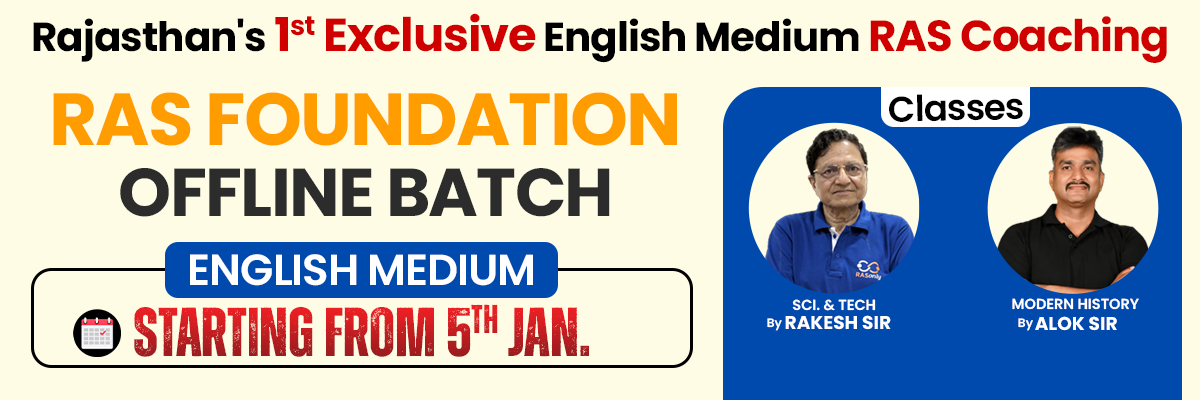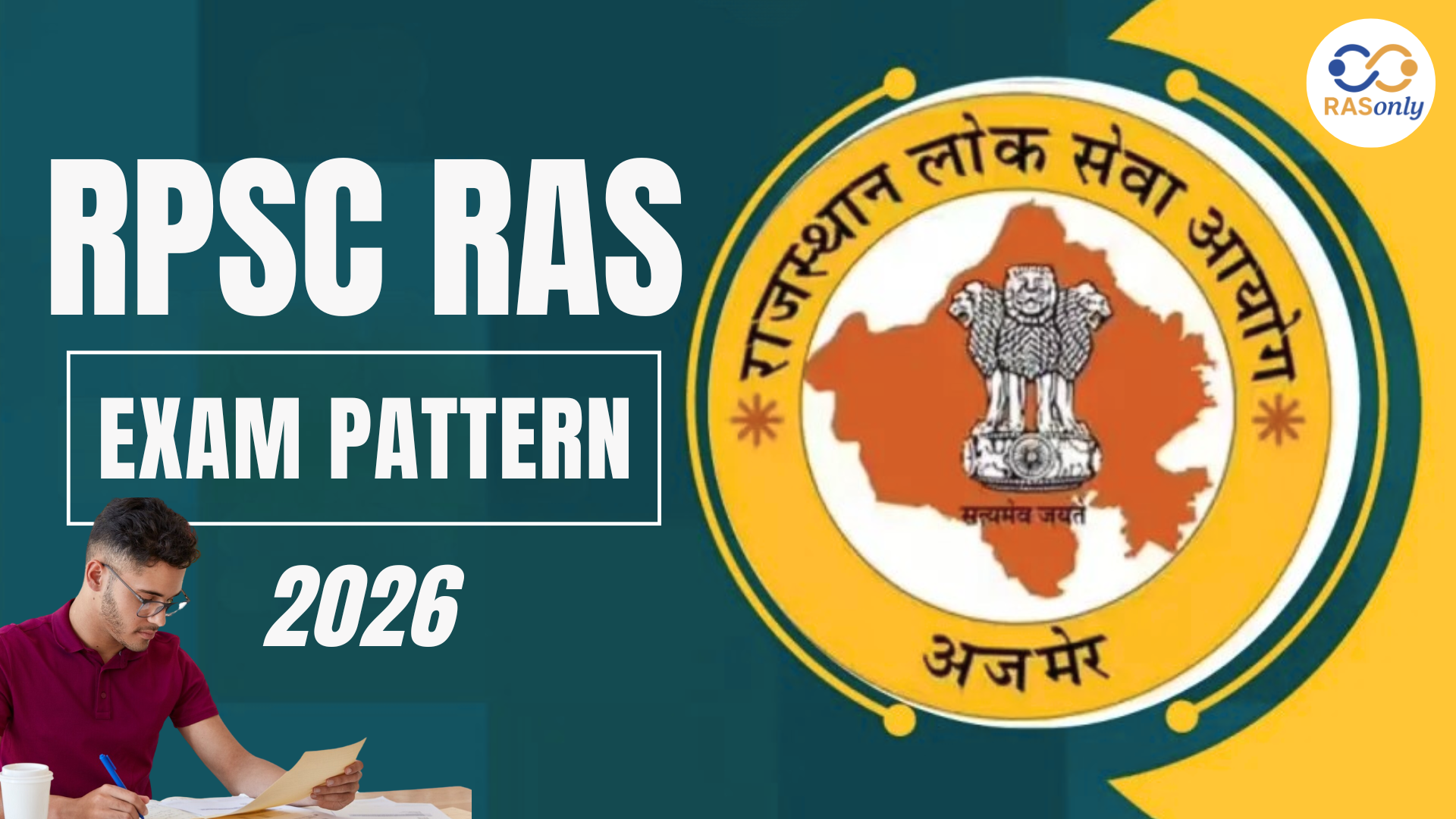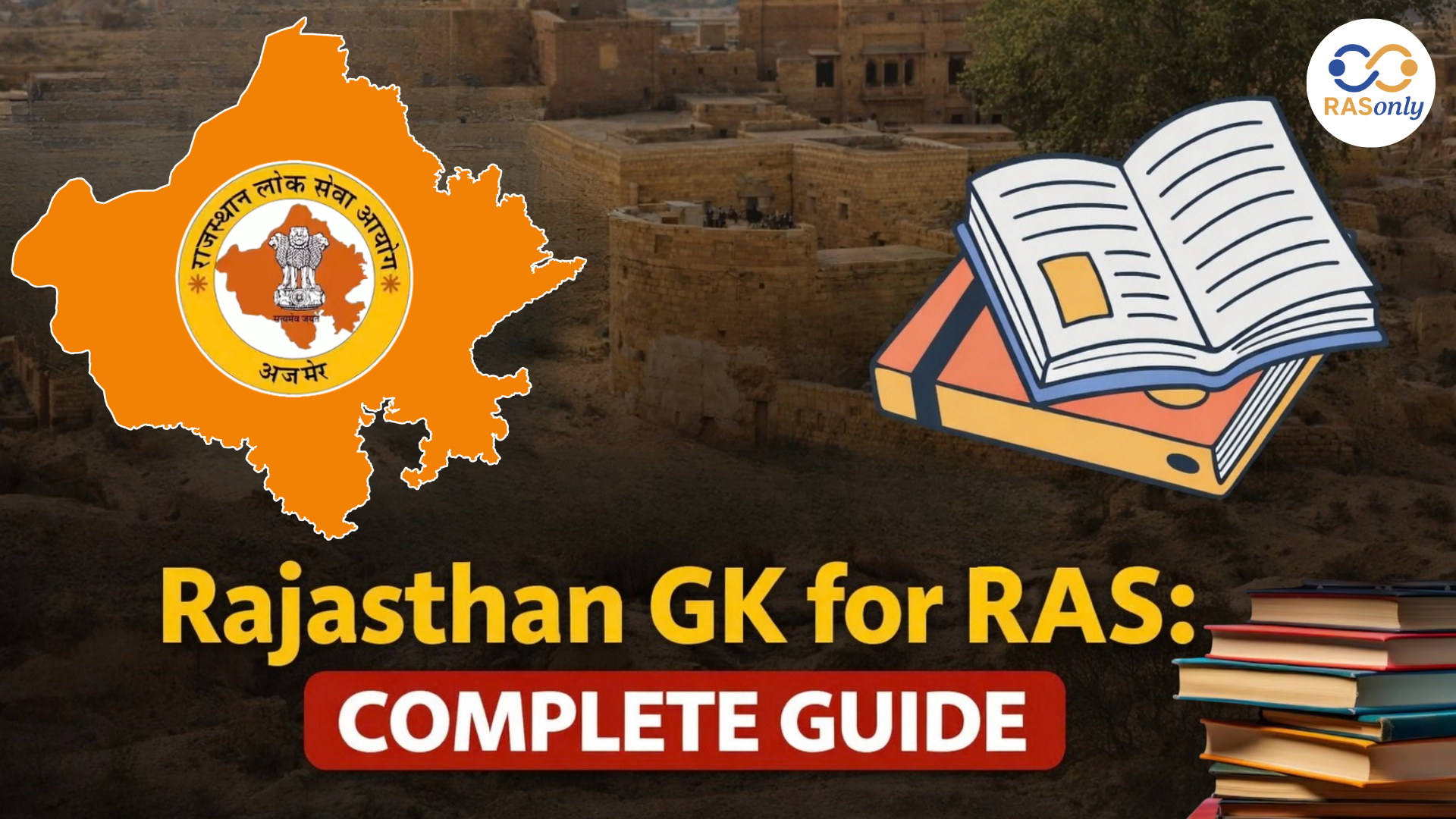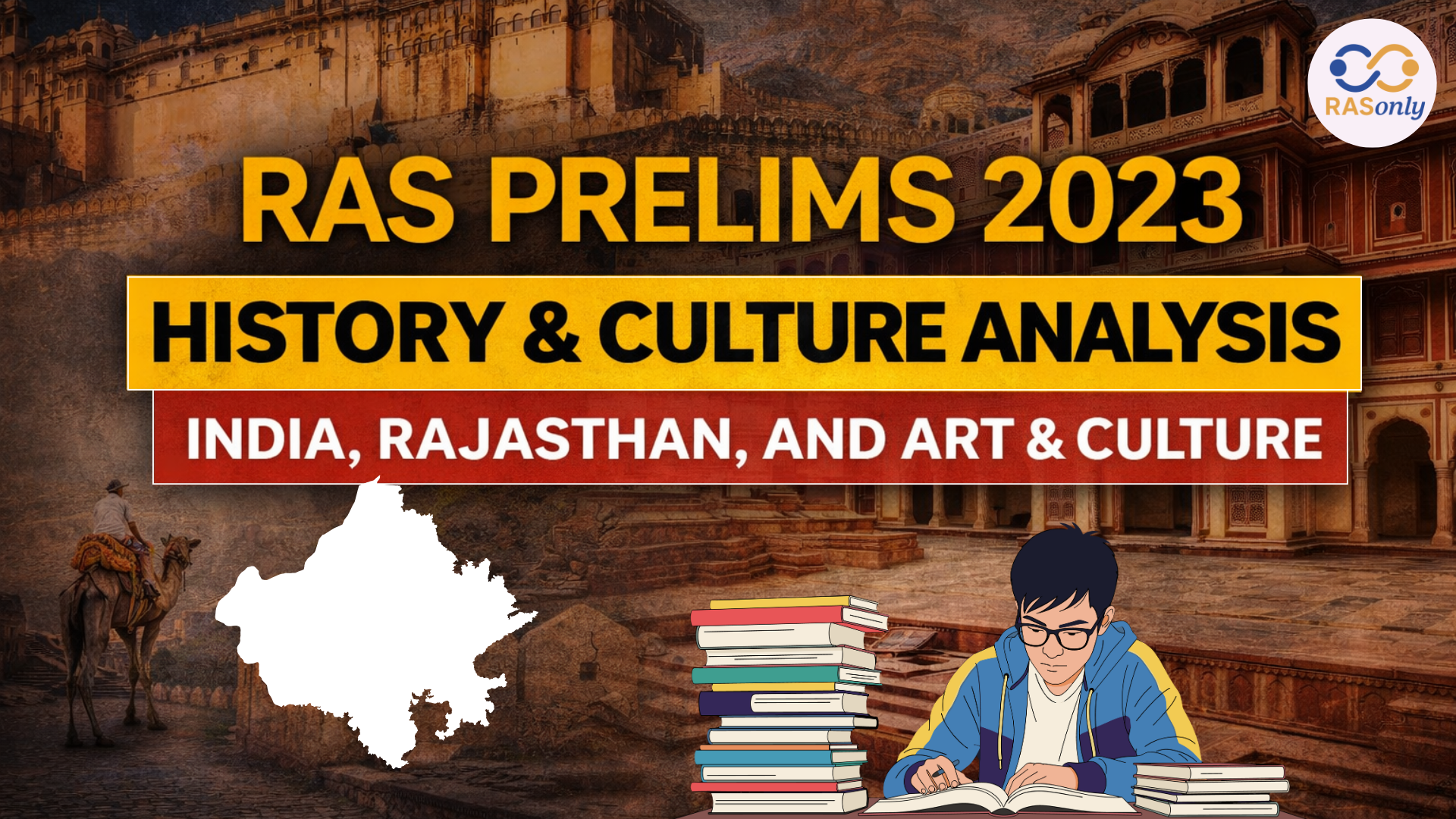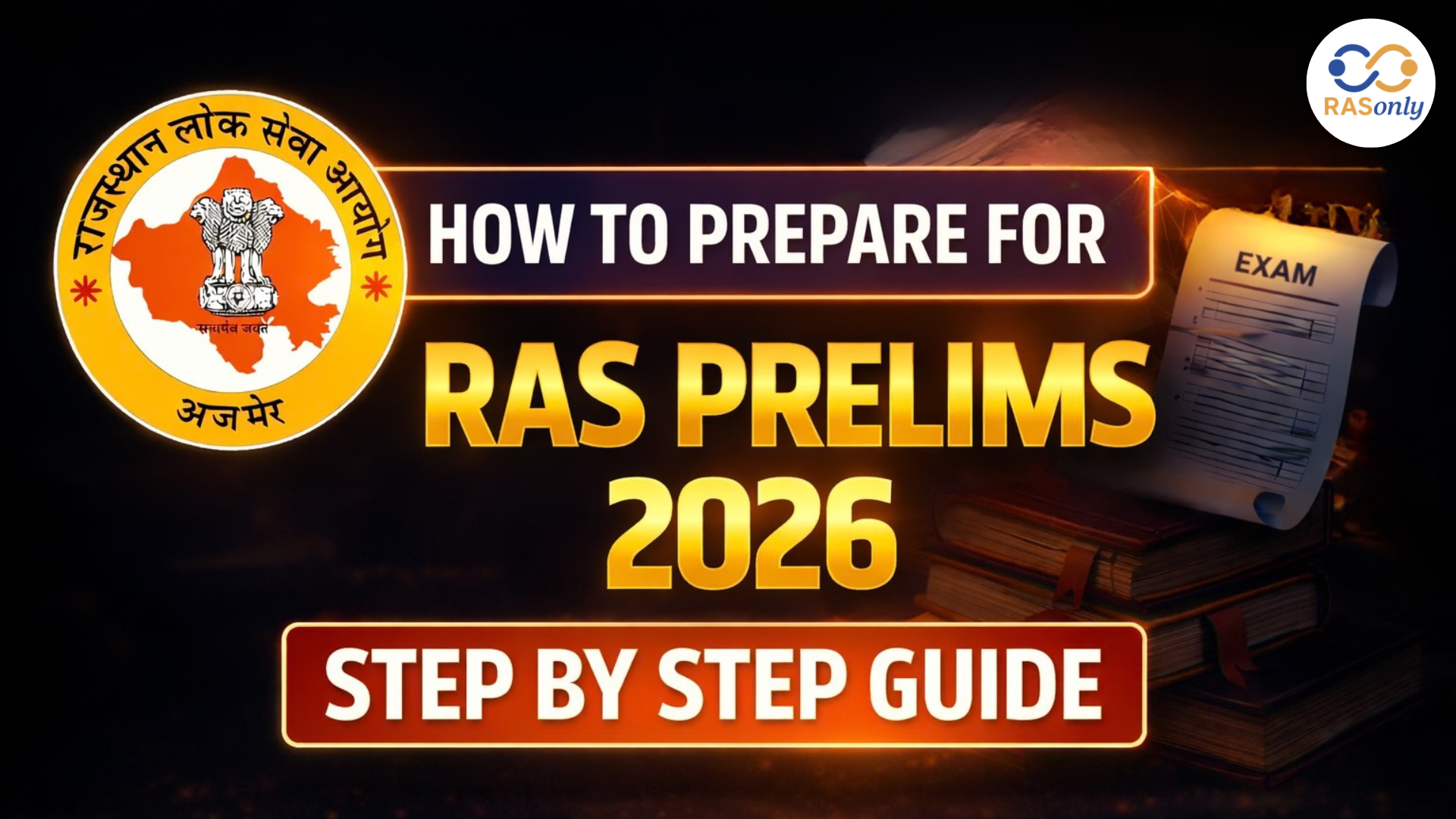RPSC RAS 2026 Subject Wise Exam Pattern for Prelims, Mains & Interview Details
- >
- RAS Preparation Resources
- >
- Electoral Process in India: Structure, Legal Framework and Voting Procedures
Electoral Process in India: Structure, Legal Framework and Voting Procedures

Get in Touch with RASonly!

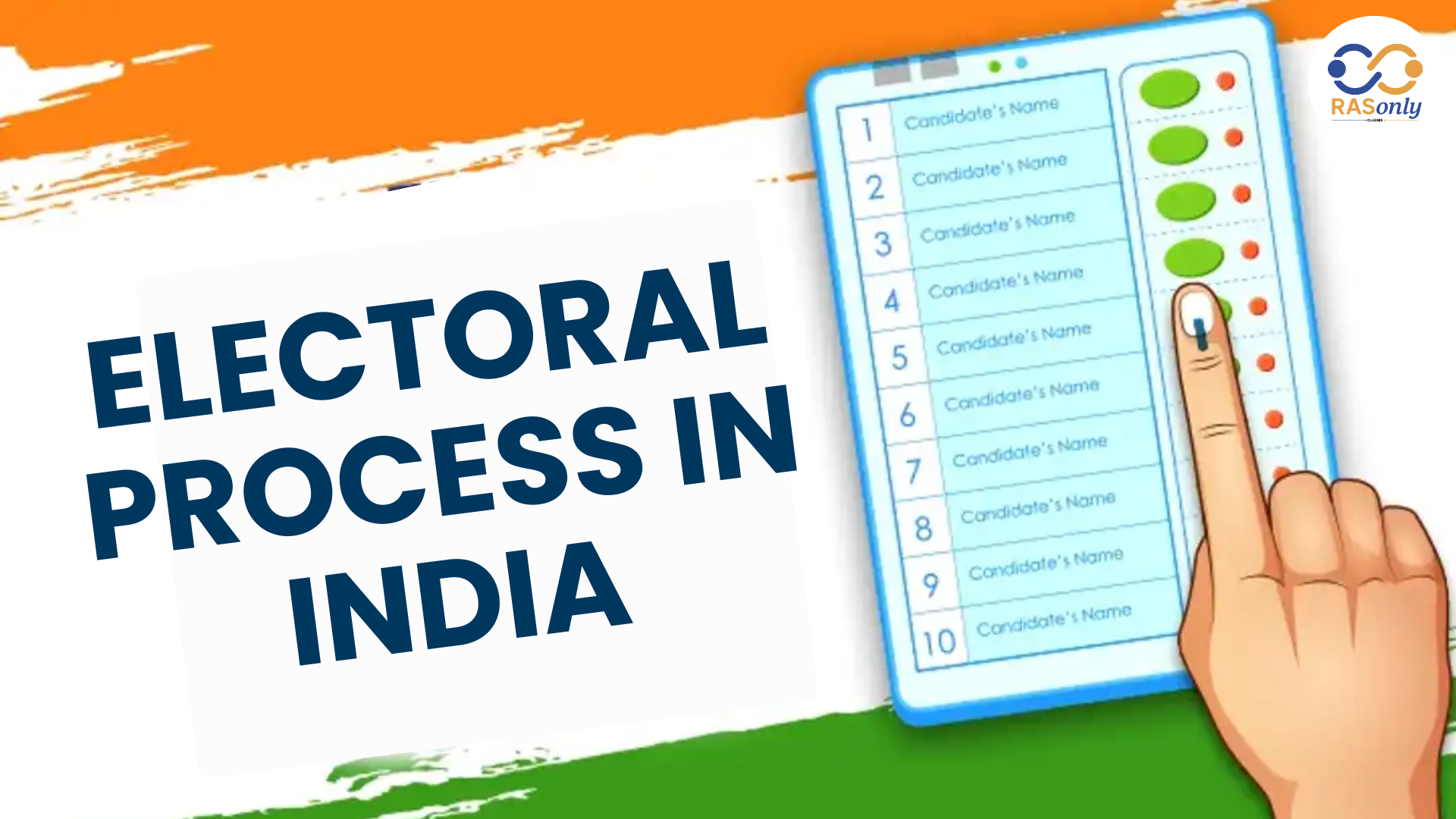
Electoral Process in India: Structure, Legal Framework and Voting Procedures
India is a democratic country as it is the largest democracy in the world and its population practices democracy by voting. This is a process which is conducted by the Election Commission of India (ECI) and is conducted at the local, state and national levels, to guarantee free, fair and transparent elections. It involves qualification of candidates, nomination, voting and post-poll processes, which will be inclusive and fair.
Eligibility To Challenger elections.
- Citizenship Qualification: The candidates should be citizens of India and swear or affirm in front of the Election Commission of India (ECI).
Age Requirements:
- Lok Sabha and State Legislative Assembly 25 years.
- 30 years in Rajya sabha and State Legislative Council elections.
- Other Qualifications: The Representation of People Act, 1951 provides other requirements to the qualification of the candidates.
- Panchayat and Municipal Elections: 21 years.
Laws to regulate elections in India.
Election Schedule
- Lok Sabha and State Legislative Assembly elections are conducted after every five years except where dissolved before that.
- Election Announcement: The ECI announces the schedule of the election several weeks ahead of the actual process and at this time Model Code of Conduct (MCC) comes into effect.
Notification for Elections
- The Election Commission then gives a formal notification starting off the election process after taking the advice of the President (in the case of Lok Sabha) or Governor (in the case of State Assemblies).
Nomination Process
- Nomination: The candidates are required to file their nomination papers that contain their personal information, electoral roll number, and recommended signatures.
- Full-fledged political parties require just one voter to submit a candidate.
- Independent candidates or the ones representing the unrecognized parties should have ten electors as proposers.
- Security Deposit: During the nomination time, a security deposit is posted, which is returned in case the nominee gets at least 1/6 th of the total votes.
- Examination of Nominations: The Returning Officer examines the validity of nominations, and may reject papers not completed or not in compliance.
- Nomination withdrawal: The nominations may be withdrawn by the candidates within two days of the scrutiny.
Campaigning and Model Code of Conduct.
- Campaigning: Political parties and candidates will convince voters. They take the media which are free and can be accessed via Doordarshan and AIR, which are known to provide free access to the recognized parties.
Model Code of Conduct (MCC):
- Provides fair play by establishing rules regarding matters such as utilization of public funds and government machineries.
- The MCC takes effect upon announcement of the election and continues up until the results are announced.
- C-Vigil App: An application that was introduced by the ECI to report any act breaching the MCC.
System of Voting
Voter’s List and Eligibility
- Electoral Roll: This is a list of voters and it is a complete list that gives an opportunity to the eligible citizens to exercise their right to vote.
Prisoner Voting Rights:
- Prisoners who are convicted are not allowed to vote.
- Under pretrial detention and for unsheltered prisoners, postal voting can be made.
Voter’s Rights and Revision
- Voting Rights: All citizens are entitled to vote although they must be on the electoral roll.
- Voter List Revision: The voter list is updated once every five years so as to make sure that it is correct and all-inclusive.
Polling Process
Election Timetable
- The Election Commission is charged with drafting the election schedule and elections are conducted in stages so as to maintain law and order.
- Polling Stations: The polling stations are established in convenient areas with 1500 voters not more than a station.
- The places are chosen in accordance with convenient location to the voters so that they are within a 2-kilometer distance.
Voting Method
- Election takes place by secret ballot.
Electronic Voting Machines (EVMs):
- This device was introduced so as to counter the problem of ballot box capturing and false voting.
- EVMs consist of:
- Ballot Unit: Voter chooses his candidate.
- Control Unit: This is run by the polling officer.
Post-Polling Process
- EVMs are closed and ferried to count the votes.
Counting of Votes
- Voting is counted after polling with the help of Returning Officers and Observers.
- The candidate who has the most votes is declared the winner.
Conclusion
The meticulously drafted legal framework, the Representation of the People Act, 1951, Model Code of Conduct, and the use of EVMs advantage the Electoral Process in India with its democracy, transparency, and fairness. The Election Commission of India plays the most vital role in supervising the elections and ensuring the elections system is credible, which adds strength to the status of India as a strong and inclusive democratic state.
Post Category
- RAS Salary
- Result
- RAS Admit Card
- RAS Job
- RAS Cutoff
- Preparation Tips
- RAS Answer Key
- RAS Exam Analysis
- RAS Syllabus
- RAS Previous Year Papers
- RPSC RAS Exam Pattern
- RAS Interview
- RAS Mains Exam Date
- RAS Vacancy
- RAS Test Series
- RAS Best Books
- RAS Preparation Resources
- RAS Coaching Centre
- History
- Polity
- Geography
- Economics
- Science
- Art and Culture
- RPSC RAS Application Form
- RPSC RAS Notification
RASonly Interview Guidance Program

Mr. Ashok Jain
Ex-Chief Secretary Govt of Rajasthan
- IAS officer of the 1981 batch, Rajasthan cadre.
- Passionate about mentoring the next generation of RAS officers with real-world insights.
- Got retired in Dec 2017 from the post of Chief Secretary of the state of Rajasthan.

Mr. Guru Charan Rai
Ex-ASP / SP in Jaisalmer
- Guru Charan Rai, IPS (Retd), retired as Inspector General of Police (Security), Rajasthan, Jaipur in 2017.
- Served as ASP and SP in Jaisalmer, Nagaur, Sri Ganganagar, Sawai Madhopur, Dausa, Sikar, and Karauli.
- He also held key positions as DIGP and IGP in the Law and Order division.

Mr. Rakesh Verma
Ex-IAS Officer, B.Tech, MBA, and M.A. (Economics)
- IAS officer of the 1981 batch and retired in Chief Secretary Rank.
- Civil servant of high repute and vast experience.
- Has been teaching UPSC CSE subjects for the last six years.
Related Post
Daily Current Affairs for RAS Exam Preparation 2026
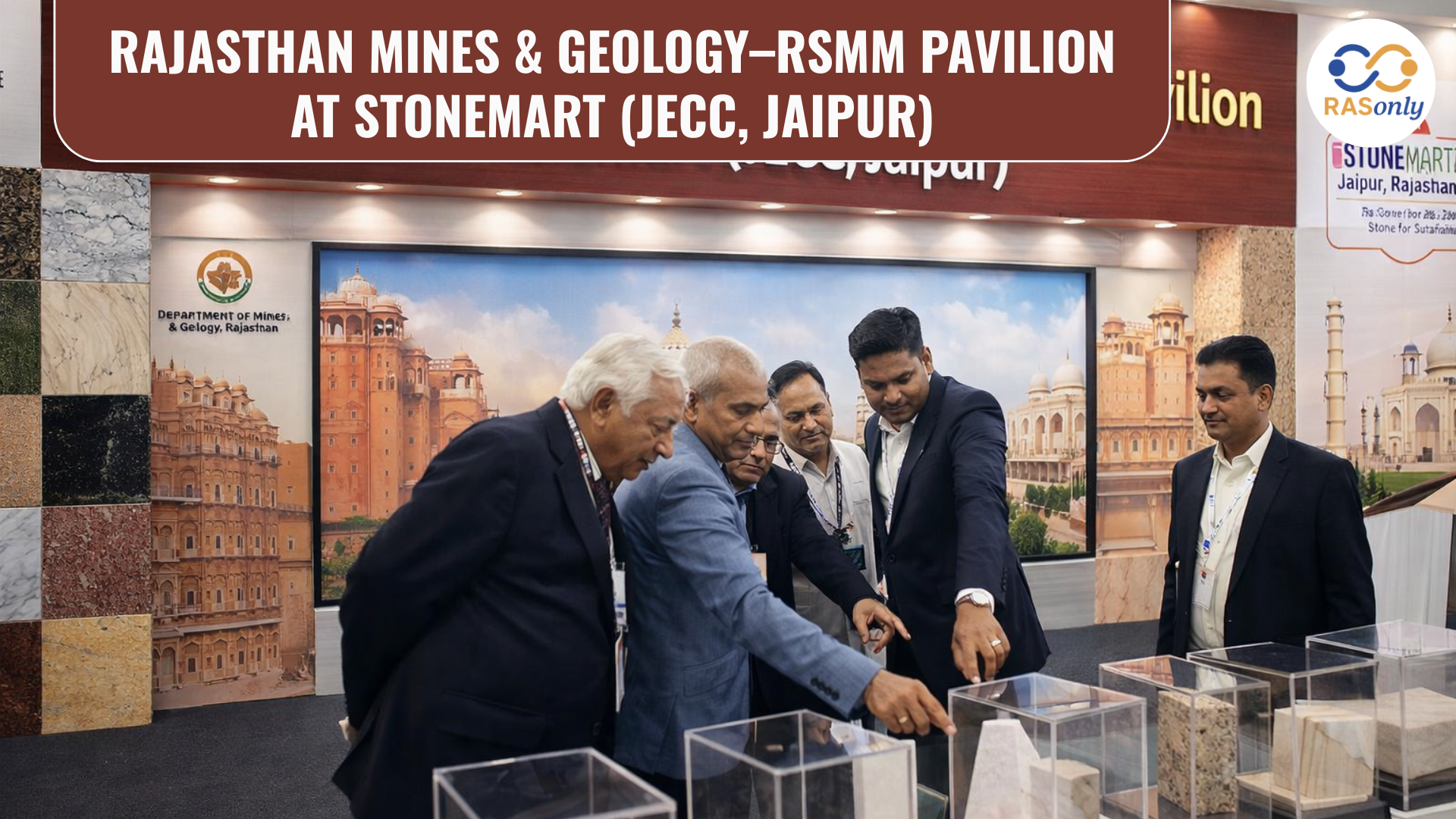
Rajasthan Pavilion Shines at Stone Mart Jaipur 2026
February 07, 2026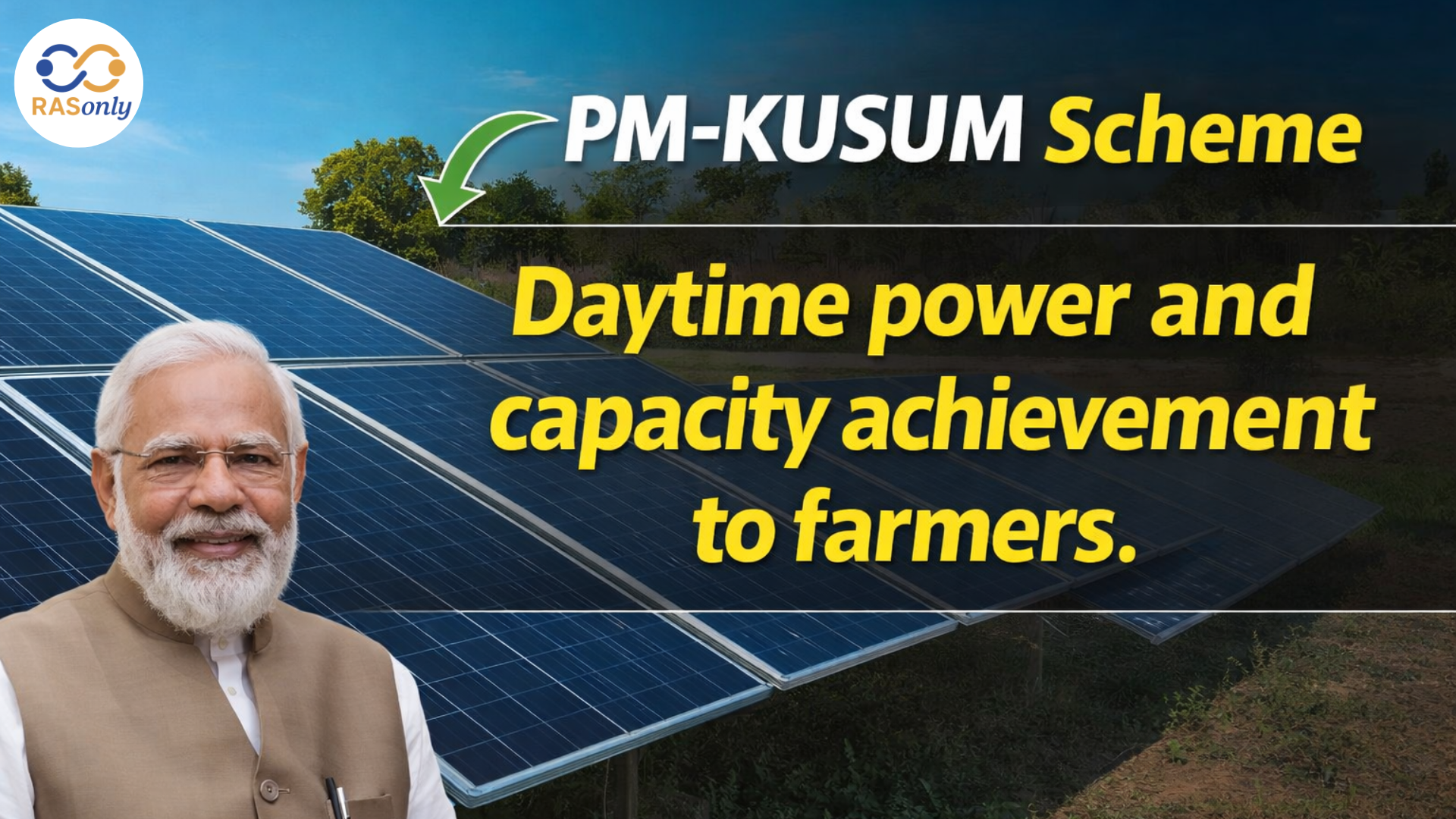
Rajasthan Achieves 3,000 MW Under PM-KUSUM Scheme
February 07, 2026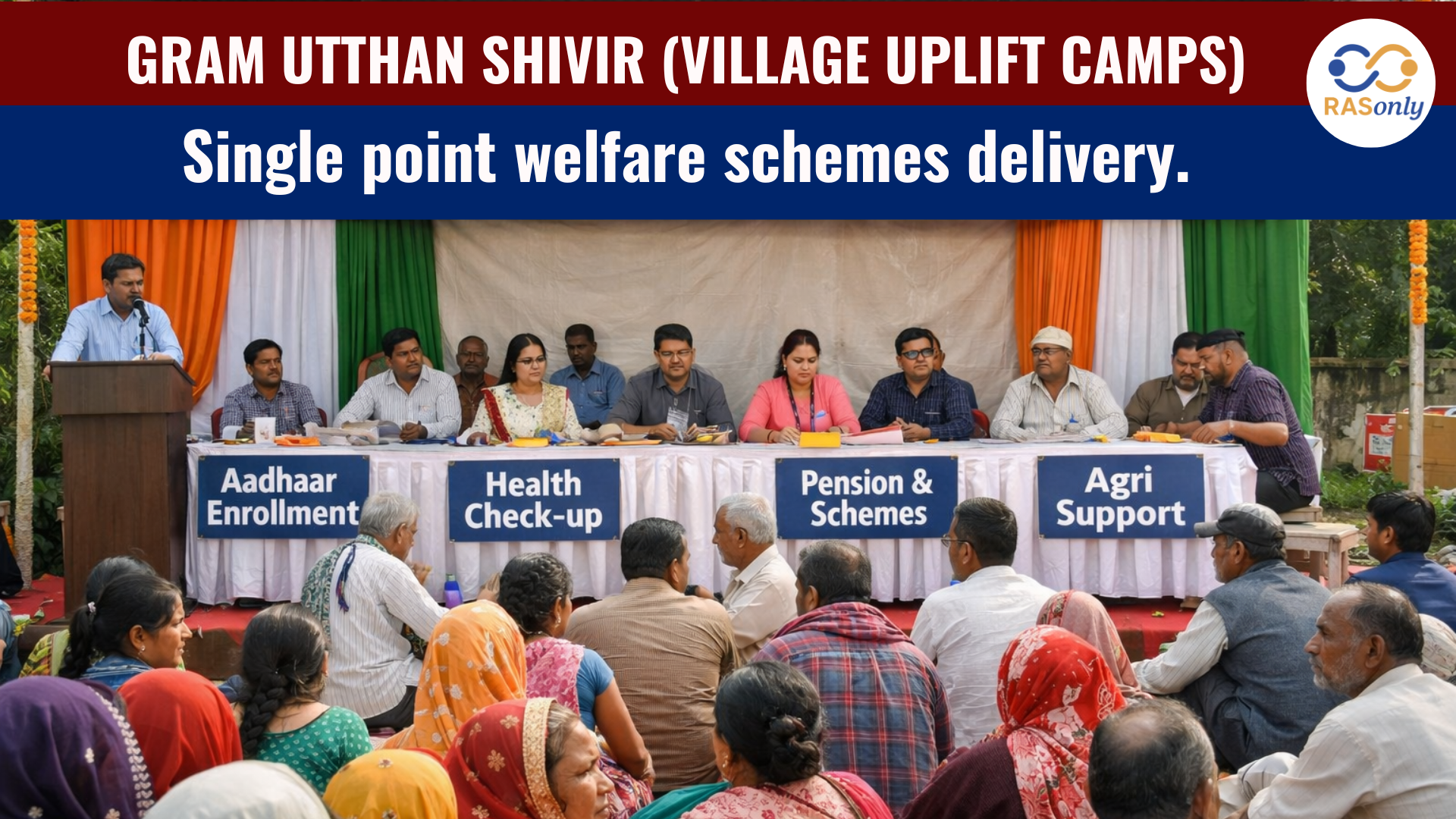
Gram Utthan Shivirs Strengthen Rural Governance in Rajasthan
February 07, 2026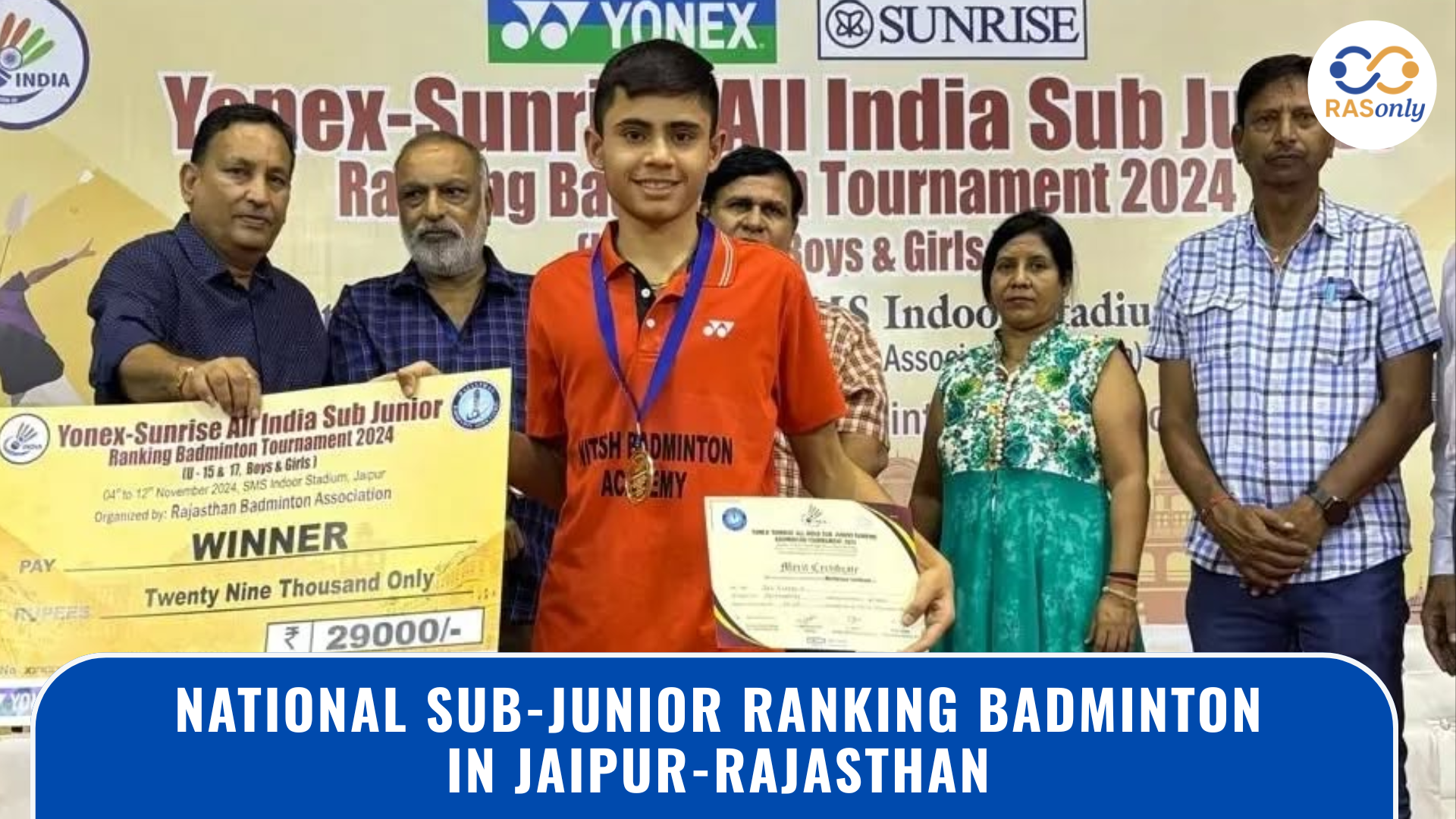
Jaipur Badminton: 72-Minute U-15 Final Creates Record
February 06, 2026👉🏻 Register Today to Join Classes! 👍🏻
- Team RASOnly -
🎯 Benefits of RASOnly Coaching:
- ✅ 1:1 Mentorship with RAS Officers
- ✅ Experienced and Expert Faculty
- ✅ Free Library Access
- ✅ Daily Minimum 4 Hours Must
- ✅ Comprehensive Study Material
- ✅ Regular Tests & Performance Analysis
- ✅ Personalized Guidance & Doubt Solving
- ✅ Online & Offline Class Options
- ✅ Affordable Fees with Quality Education
Key Highlights:
- 👉🏻 3-Day Refund Policy
- 👉🏻 New Batch Starting from 04 August
- 👉🏻 Registration Amount: Only ₹1000




